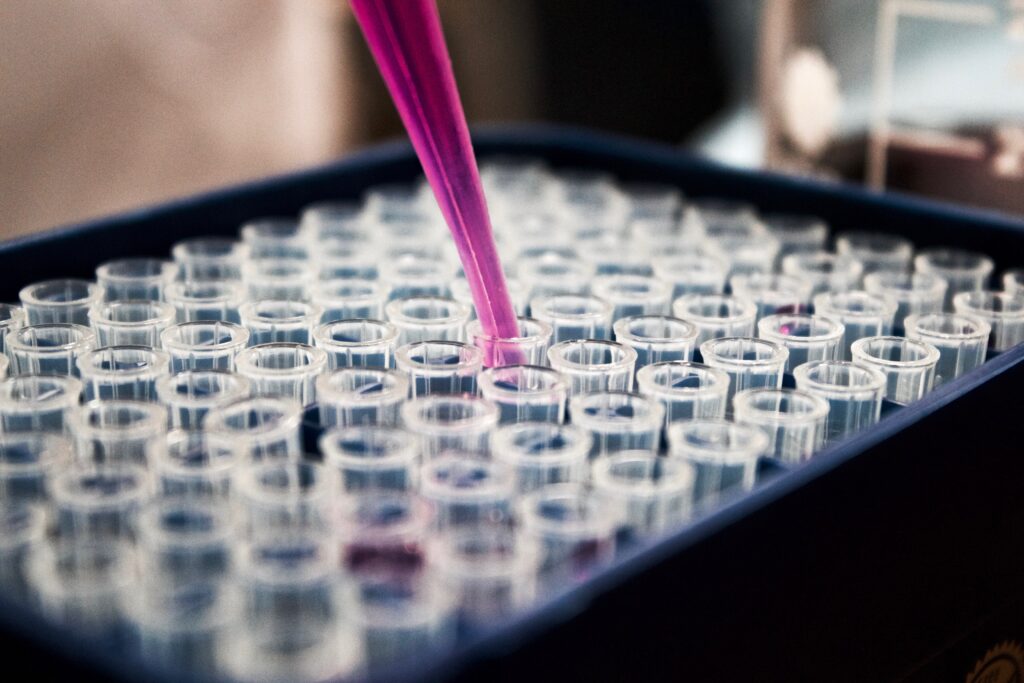As an Amazon Associate I earn from qualifying purchases.
In this article, you will learn what steps to take if you experience rectal bleeding. We will discuss common causes of rectal bleeding and provide you with practical advice on how to manage this situation. By the end of the article, you will have a better understanding of when to seek medical help and how to take care of yourself if you are experiencing rectal bleeding.
Understanding Rectal Bleeding
Rectal bleeding can be a worrisome and alarming symptom. It refers to the presence of blood in the stool or blood coming from the rectum. While the causes of rectal bleeding can vary, it is important to understand the symptoms and seek medical attention when necessary. This article will provide an overview of rectal bleeding, including its causes, symptoms, and the steps you can take to address the issue.
Causes of Rectal Bleeding
Rectal bleeding can occur due to a variety of reasons, ranging from mild to more serious conditions. Some common causes include:
- Hemorrhoids: Swollen blood vessels in the rectum or anus can lead to bleeding.
- Anal fissures: Small tears in the skin lining the anus can result in bleeding during bowel movements.
- Rectal polyps: These are small growths that develop on the lining of the rectum and can cause bleeding.
- Inflammatory bowel disease (IBD): Conditions like Crohn’s disease and ulcerative colitis can lead to rectal bleeding.
- Diverticular disease: The presence of small pouches in the colon can cause bleeding when they become inflamed or infected.
- Gastrointestinal infections: Infections like gastroenteritis can cause rectal bleeding.
- Colon cancer: While less common, rectal bleeding can be a symptom of colorectal cancer.
Symptoms of Rectal Bleeding
Rectal bleeding may present with various symptoms, including:
- Blood in the stool, which can be bright red or dark and tarry in appearance.
- Blood on toilet paper or in the toilet bowl after a bowel movement.
- Rectal pain or discomfort.
- Change in bowel habits, such as diarrhea or constipation.
- Abdominal pain or cramping.
It is important to note that rectal bleeding should not be ignored, especially if it is persistent or accompanied by other concerning symptoms.
Seeking Medical Attention
If you experience rectal bleeding, it is important to seek medical attention promptly. While the cause may be benign, it is crucial to rule out any serious underlying conditions. Additionally, a healthcare professional can provide a proper diagnosis and recommend appropriate treatment options.
Initial Steps for Rectal Bleeding
When faced with rectal bleeding, it is essential to stay calm and assess the situation. Taking the following steps can help you manage the immediate situation:
Stay Calm and Assess the Situation
Remaining calm is crucial to think clearly and handle the situation effectively. Take a deep breath and try to evaluate the severity of the bleeding. If the bleeding is significant or accompanied by severe pain, consider contacting emergency medical services.
Clean the Affected Area
After a bowel movement, gently clean the area around the anus with mild soap and warm water. Avoid using harsh soaps or wipes with fragrance, as they may irritate the skin and worsen the bleeding.
Use Sterile Materials
To prevent infection, use sterile materials such as clean towels or sterile gauze to gently pat the area dry. Avoid rubbing or applying excessive pressure, as it may further irritate the skin.

Self-Care Measures
While seeking medical attention is important, there are some self-care measures you can take to alleviate discomfort and promote healing:
Applying Cold Compress
Applying a cold compress to the affected area can help reduce inflammation and provide temporary relief. Wrap ice cubes in a clean cloth and gently apply it to the anus for a few minutes at a time.
Using Over-the-Counter Medications
Over-the-counter topical creams or ointments containing ingredients like hydrocortisone or lidocaine can help soothe the area and reduce pain. It is essential to follow the instructions and use them as directed.
Using Topical Treatments
Certain topical treatments, such as creams or suppositories, may be recommended by your healthcare provider. These treatments can help shrink hemorrhoids or treat other underlying conditions causing rectal bleeding.
Lifestyle Changes for Rectal Bleeding
In addition to initial steps and self-care measures, making certain lifestyle changes can help manage rectal bleeding and prevent future episodes. Consider the following modifications:
Dietary Modifications
Eating a high-fiber diet can help regulate bowel movements and soften stools, reducing the strain on the rectum. Include fruits, vegetables, whole grains, and legumes in your diet. Avoid spicy foods, alcohol, and caffeine, as they can irritate the digestive system.
Increased Hydration
Drinking an adequate amount of water and staying hydrated can promote regular bowel movements and soften stools, thereby minimizing the risk of rectal bleeding.
Avoiding Straining during Bowel Movements
Straining during bowel movements can exacerbate rectal bleeding. To avoid straining, allow enough time for a bowel movement, and try not to force it. If needed, consider using a stool softener or fiber supplement.

Home Remedies to Alleviate Symptoms
In addition to lifestyle changes, certain home remedies can provide relief from symptoms associated with rectal bleeding:
Sitz Baths
Taking warm sitz baths can help soothe the rectal area and reduce discomfort. Fill a tub or basin with warm water and sit in it for about 10-15 minutes. Repeat this several times a day, as needed.
Applying Witch Hazel
Witch hazel, available in the form of wipes or liquid, can help reduce inflammation and provide relief. Gently apply it to the affected area using a clean cloth or cotton ball.
Using Aloe Vera
Aloe vera gel or creams can have a soothing effect on the skin and reduce irritation. Apply a small amount of aloe vera gel to the affected area for relief.
When to Consult a Doctor
While self-care measures and home remedies may provide temporary relief, it is essential to consult a doctor for further evaluation and treatment. Seek medical attention in the following situations:
Persistent or Severe Bleeding
If the rectal bleeding persists or becomes severe, it is important to see a doctor immediately. Persistent or heavy bleeding may indicate a more serious underlying condition that requires medical intervention.
Recurrent Bleeding Episodes
If you experience recurrent episodes of rectal bleeding, even if they are mild, it is important to consult a healthcare professional. They can evaluate the cause and recommend appropriate treatment to prevent further episodes.
Accompanying Symptoms
If rectal bleeding is accompanied by symptoms such as abdominal pain, changes in bowel habits, weight loss, or weakness, it is important to seek medical attention. These symptoms can indicate more serious underlying conditions that require prompt evaluation and treatment.

Medical Treatments for Rectal Bleeding
Medical treatments for rectal bleeding vary depending on the underlying cause. Your healthcare provider may recommend the following options:
Diagnostic Tests
To determine the cause of rectal bleeding, your doctor may order specific diagnostic tests, such as a colonoscopy, sigmoidoscopy, or imaging studies like CT scans or MRI.
Medications and Prescriptions
Depending on the underlying cause, your doctor may prescribe medications to treat conditions like hemorrhoids, anal fissures, or inflammatory bowel disease. These medications can help relieve symptoms and promote healing.
Minimally Invasive Procedures
In some cases, minimally invasive procedures may be necessary to treat the underlying cause of rectal bleeding. Procedures like rubber band ligation or sclerotherapy can be used to treat hemorrhoids, while surgical interventions may be required for conditions like rectal polyps or colorectal cancer.
Complications and Prevention
While rectal bleeding can be concerning, prompt treatment and preventive measures can help avoid potential complications. It is important to be aware of the following:
Potential Complications of Rectal Bleeding
If left untreated, rectal bleeding can lead to complications such as anemia, infection, or the worsening of underlying conditions. It is therefore crucial to address the issue promptly.
Preventive Measures
Taking steps to prevent rectal bleeding is essential for long-term management. This includes maintaining a healthy lifestyle, managing underlying conditions, and seeking regular medical check-ups.
Regular Health Check-ups
Regular visits to your healthcare provider can help identify and address any potential issues before they become major concerns. Routine screenings and health check-ups are especially important for individuals at a higher risk of developing colorectal conditions.
Emotional Support and Coping Strategies
Dealing with rectal bleeding can be emotionally challenging. It is important to take care of your mental and emotional well-being throughout the process. Consider the following strategies:
Managing Anxiety and Stress
Practice stress management techniques, such as deep breathing exercises, meditation, or engaging in activities that bring you joy. Reach out to friends and family for emotional support.
Support Groups and Counseling
Consider joining support groups or seeking counseling to connect with others who have experienced rectal bleeding. Sharing experiences and seeking guidance from professionals can help you cope with the emotional impact of the condition.
Educating Yourself
Become knowledgeable about your condition and treatment options. Understanding the causes, symptoms, and available medical interventions can help you make informed decisions and alleviate anxiety.
Conclusion
In conclusion, rectal bleeding can be a distressing symptom that requires proper evaluation and treatment. By understanding the causes, symptoms, and available treatment options, individuals can take appropriate steps to ensure prompt medical attention and prevent complications. Remember, seeking medical advice and following the recommended treatment plan are crucial for addressing rectal bleeding effectively.
Amazon and the Amazon logo are trademarks of Amazon.com, Inc, or its affiliates.
